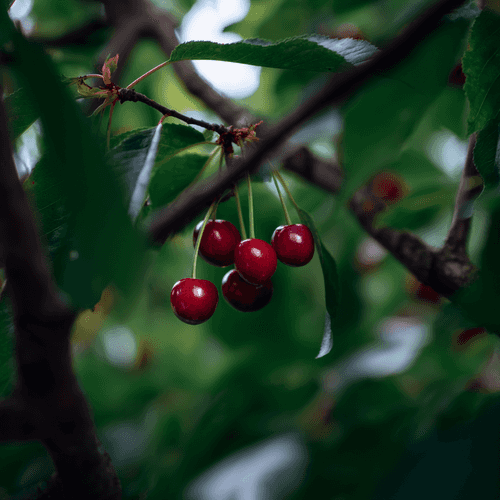Did you know ?
- 1 Cherries do not ripen after being picked.
- 2 Cherry blossoms are Japan’s national flower.
- 3 Cherries contain melatonin, which may help improve sleep.

Cherries are small, round stone fruits with a sweet or tart flavor, prized for their vibrant color and juiciness. Enjoyed fresh or in recipes, cherries are packed with nutrients and antioxidants.
Did you know ?
View other Stone fruits
Nutrition
| Calories | 74 kcal |
| Proteins | 1.2g |
| Carbohydrates | 18.7g |
| of which sugars | 15g |
| Fiber | 2.5g |
| Fats | 0.2g |
Ripeness
Selection
Storage and ripening
Cherries do not ripen after harvest, but to maximize freshness :
Health
Origin
Cherries are native to Eastern Europe and Asia Minor (modern-day Turkey region), where wild varieties have been cultivated since ancient times. They spread throughout Europe and Asia, becoming a prized fruit in many cultures. Today, cherries are grown worldwide, with major production in the United States, Europe, and Asia.
Recipes
Gallery
There is no images yet. Submit one now to contribute to the gallery !
F.A.Q
Warnings
Small, round, and red, but a type of tomato, not a stone fruit.
Tropical fruit, higher in vitamin C, unrelated to true cherries.